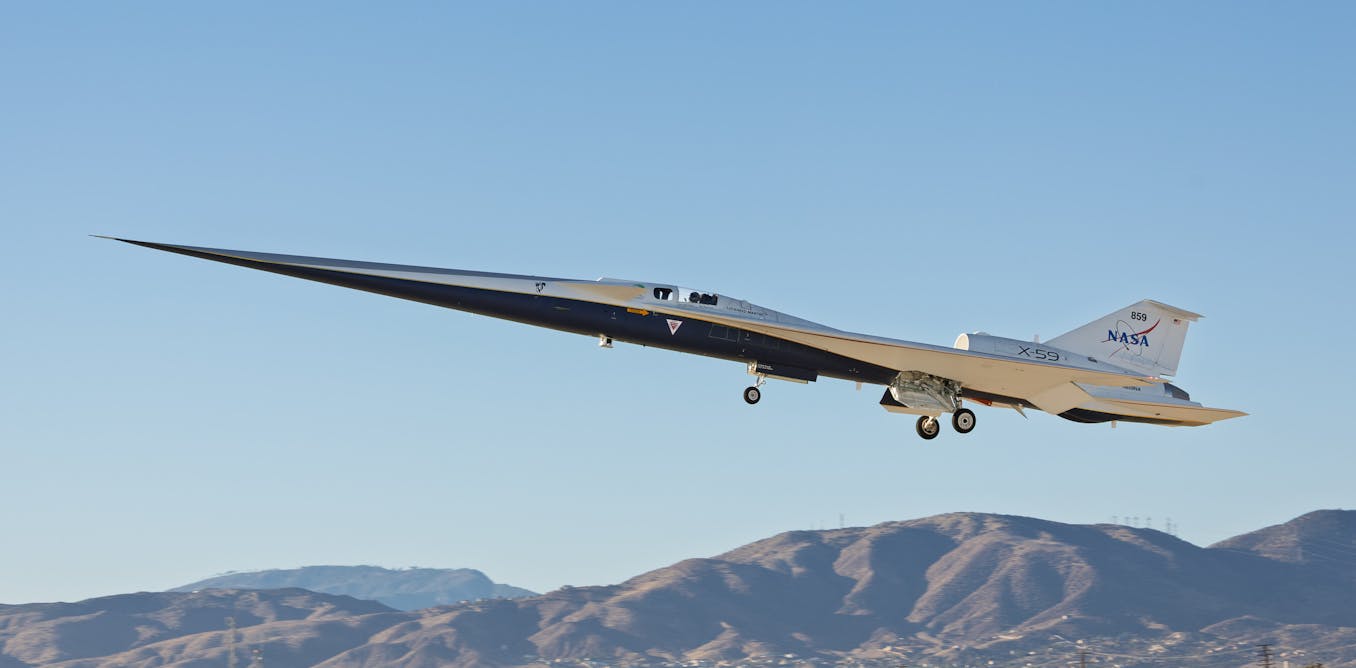Leadership in the Age of AI | Paul Hudson and Lindsay Levin | TED
In their TED talk, Paul Hudson, the CEO of Sanofi, and Lindsay Levin, an expert on AI, discuss the role of artificial intelligence in the modern business landscape. They address the fear and uncertainty surrounding AI, as well as the importance of embracing the potential it offers. Hudson shares his experience at Sanofi, where they are aiming to be a leader in the pharmaceutical industry by using AI at scale. He discusses the resistance and hesitancy that many leaders and organizations face when it comes to AI, and emphasizes the need to embrace change in the fourth industrial revolution.
Hudson also addresses the impact of AI on the workforce, asserting that it is not about job losses, but rather creating more meaningful work and allowing people to focus on insights and action. He believes that AI can enhance productivity and efficiency, ultimately leading to a more enjoyable work experience. Additionally, Hudson touches on the leadership dynamic in organizations, acknowledging the shift in power and insight to younger generations who have grown up with AI technology.
Levin and Hudson also touch on the broader societal challenges, such as sustainability, and emphasize the importance of taking responsibility for addressing these issues. They underscore the need for purpose-driven action and innovation within industries like healthcare, where AI is playing a role in driving meaningful change.
Overall, their TED talk provides valuable insights into the challenges and opportunities presented by AI in leadership and business, as well as the need for a forward-thinking approach to embracing this technology in the modern age.
Watch the video by TED
Lindsay Levin: So we’re living in an era with multiple overlapping disruptions that business is facing, and I want to dive straight in and talk about one of the biggest of those, which is AI. How are you approaching AI? Paul Hudson: You know, AI at scale, it’s a whole big subject, of course,
But for us, at Sanofi, we aim to be the world’s leading pharmaceutical company using AI at scale. Why and how are we going to do that? It’s pretty straightforward. We have 23,000 people using AI as often as every month, 9,000 people in the company using AI as often as every day.
We’re boldly taking on the opportunity to completely disrupt the business. We don’t have a choice. It’s the fourth industrial revolution. It’s here whether we like it or not. And it’s amazing how resistant people can be across organizations and across industries. But we’re all in and have been quite public about that.
Our aim is to provide daily decision intelligence, to give people a sort of nudge in the right direction, to give them deeper insights, to allow them to be more effective at what they do. And it’s real. And it’s such a privilege to be involved in it.
LL: I mean, you’re taking a very aggressive, active stance. What surprised you? PH: Well, a lot of things surprise you about AI. I mean, for some people it’s Skynet and Terminator. For some people, they confuse AI with cyber. I’m not saying everything is perfect,
But I’m surprised at the number of CEOs or executives who — Their first response to an AI conversation is “Governance, controls, rules, principles.” Of course, everything has its place, but I think we have to be honest with ourselves. If it is the fourth industrial revolution, which we believe it is, then hesitating,
This fear that can take over, can deprive you of so much opportunity. And you have to go for it. I find that when you talk to lots of CEOs, they really are very hesitant. Some would say even frightened. I look internally, people are frightened that you get this radical data transparency
You can see their data real-time. LL: And you’re experiencing that. PH: I’ve experienced that and still do. You know, people are often shocked that you may get the insight at the same time as somebody lower down the organization. And then there’s the lost opportunity to polish a slide deck
And re-present it in the way that I’m supposed to be informed. It’s not a deliberate, sort of, misleading approach. It’s what people know. They get the insight, they craft the story, they push it upwards. And that’s life in many corporations. For us, we get the data,
I get the same data every level of the organization does. I get the insight exactly the same time. And then people say, “Paul, don’t look, the data is not 100 percent correct.” Well, make it correct because the data is live. So if you really jump in and make it correct,
It’ll better reflect what you’re doing, right? But if we wait for perfection it’s simply not going to happen. LL: So we’re seeing fear and some of that, I guess, is not unreasonable. You know, we read reports about the impact on job losses, for example, to come from AI.
I wonder what mindset you believe people need to adopt in the workforce of all generations, as they approach or we all approach this new future? PH: You know, the adoption of AI in particular is not about jobs. And I know people will think that and inevitably, more meaningful work is created.
And of course, some roles change or some skills don’t match. And therefore, you know, with the help of many of the people in the room, you get to reshape organizations. But in the end, it’s really about using artificial intelligence to create this real momentum of decision making
And to be able to take such an advantage over the competition. And we believe, I believe, that if you create more meaningful work and people focus on insights and action and less on Excel and PowerPoint and Word, then there is a chance that they enjoy their work more.
Now it may lead to productivity gains, it may lead to efficiency. It may lead to all those things, nobody’s sort of denying that. But what I’ve discovered so far is when it does, people see it quite quickly and they put their hand up to do something else, or to focus more on insights
Than … data crunching and aggregation. You know, I’m old enough to remember when the internet was launched, you know, commercially. And it’s sort of similar arguments, even when the cell phone was launched. “Be careful.” But the truth is, they made all our lives better. The use cases are coming.
But I think we’re starting to understand now how much this is going to change everybody’s lives. LL: So who is leading this in the organization? Is it a new generation? Is it specially appointed people? Where’s the leadership coming from? PH: It’s an excellent question
Because maybe I’m the last of the great dinosaur CEOs who got to the top by doing sort of every job. I ran Japan, I ran North America, you know, I was in global marketing. You know, I’ve done all the tasks, to get to the top, and then I’ve sort of seen everything.
And so I can be involved in every discussion. And now the younger talent are saying, “You didn’t see AI, old man.” So, you know, “I have a better insight than you do.” And “Oh, and by the way, I’m not just going to push it up to my boss,
I’d like to tell you myself.” LL: Right. PH: So the younger talent, justifiably is saying, “Hey,” you know, “I don’t need to have my work shared upwards by a bunch of guys who are all sitting there going, ‘What do you think?’ and none of them actually know.” And so we invert the pyramid.
We have to have different people with two, three, four years experience in the room. Because what do we know? And that’s sort of exciting, I think, really exciting. LL: So is AI a unique disruptor? If we think about some of the other big challenges, you know,
We’ve got to shift the entire global economy to be sustainable, for example. Is that comparable in terms of complexity? Maybe more so? How do you tackle that kind of an issue? PH: I think these are the big transformational moments for society. And, you know, sustainability is,
You know, for many, it was carbon neutrality, then it was net zero, it was go to COP 28, it was put a poster by the elevator with the meaningful work you’re doing to show your commitment. But it’s really different now. I think there’s a collective realization, certainly in healthcare,
That we didn’t do well enough. And we’re a very purpose-driven organization — an industry, in fact. We do health, we transform the practice of medicine, we invent miracles often. And so it’s very easy to say, look, we’re very purpose-driven. But it doesn’t abdicate the responsibility
Of removing plastic from packaging of vaccines and medicines. It’s ridiculous to even think you wouldn’t have to. Often it’s harder with the regulator, by the way, to get that done than with your own people. LL: So you’ve got those kinds of projects going on, have you? Can you give us an example?
PH: We have to do it. We have to do it because, you know, we have this sort of approach of what can we do that if we don’t do, it won’t happen? And that’s sort of our philosophy. You know, in healthcare, it’s a good example, you know, delivery of healthcare creates more carbon
Than the airline industry. And that’s half of that, let’s say five percent. Half of that is making drugs, shipping them, doing different things. The other half is people driving to hospitals for an appointment in an overheated, overcooled healthcare practice, too often, without the use of a virtual hybrid delivery of healthcare.
And it’s the same as the airline industry. And, you know, we feel, because we’re in healthcare, we have this unique opportunity. If somebody is pre-diabetic, for example, and you coach them and they change their lifestyle and don’t become a diabetic, that’s a difference of them creating 16 tons of carbon
As a normal adult, healthy, and 48 tons of carbon in their adult life if they become diabetic. That’s a 3X. That’s really meaningful. And if we don’t step in and help, we just simply never get there and we’re doing a lot of work, I’m doing a lot of work with King Charles
And the Sustainable Markets Initiative to get people to decarbonize the delivery of healthcare, because it’s such a massive opportunity. LL: And presumably you’ve got to collaborate in very different ways than in the past to do, you know, you’re talking about supply chains to deal with something like plastic.
Are you seeing different kinds of skills from people in order to make those collaborations? PH: Well, I think these functions and the sustainability groups, as I said, have come from a poster by the elevator to being very actively involved in a lot of work to do these things properly.
And, you know, you, it’s not about a competitive advantage, in Sanofi being better at wastewater management or renewable energy than Pfizer or AstraZeneca. That’s not a competition. The competition is us versus, you know, destroying the planet. So we work a lot together to do the right thing.
I work with Novo Nordisk, AstraZeneca, GSK to try and work out ways to be kinder to the environment in the delivery of health, and it’s the right thing to do, right? It’s a shared responsibility, a collective responsibility. LL: And we’re talking here about big social challenges beyond any one business
Or industry or even country, with an expectation that business needs to step forward. I think partly driven by the fact that policy doesn’t always work, and we’re disappointed with leadership and with government. So a lot of finger pointing as to who’s responsible and who can act on these big shifts.
I wonder how ambitious and bold do you feel CEOs should be about stepping forward and helping society through some of these mega transitions that we are faced with? PH: You know, it’s clear that companies are being pulled more into the conversation about individual’s values. And I think people who work in our company,
And all companies, start to try and identify themselves, perhaps rightly, with the values of the company. And they’re starting to have much higher expectations about the company they work for. And it can be on all the major social issues. You know, there’s been so many difficult moments and tragic moments.
I’m often written to by people from all over the world. “You haven’t declared which side you’re on on this important subject. Why not?” And people want to know that you are fully vested and the company is behind them. To be clear, it’s almost impossible to get everything right.
The world is almost, you know, perfectly divided. You can pick an issue and half your employees will tell you “We don’t agree,” and the other half will say, “Well done.” And we’re not used to that as CEOs, we’re used to trying to find the right sort of moment
To get the majority to say, “I’m proud of my company.” So you have to retreat a little bit and say, I’ll spend my energy on making sure whatever the issue, that the people, 90,000 people in our case, get the very best chance to live their best version of themselves.
Could be inclusion, it could be race, it could be many different things. It could be LGBTQ-plus. But whatever those issues that are being debated strongly or less strongly in different parts of the world, it matters to us that our people feel they can be the best version of themselves.
So when people ask, “What do you think about this?” “What do you think about that?” I can have a personal opinion, but our organization, if you’re looking to match your values with ours, is really about, we’re in healthcare, we want you to have the best life possible.
How can the company facilitate that in this sort of, maelstrom of subjects? And we focus then — I’m not saying we’re perfect, I don’t think any company really is perfect on this, but the expectation of our own employees to be able to set a standard on an issue
And to see it through is real. And leading in these times is more complicated, I think, than perhaps it has been previously. LL: So you’re describing a world where the work of the CEO is changing very fast. Could you just sum up for us the role of a leader in this new era?
PH: Well, I took this role at the end of 2019 and thought, I will roll through my 100-day plan and I will amble through getting around town halls across the world and shake a lot of hands and do a listening tour. And a pandemic dropped on us within a few weeks after that
And worked out of the kitchen not far from here. And the war, Russia-Ukraine, current war, Israel and Hamas, and mentioned the pandemic. China-US, the social issues. And I think what we realize is leading is I think somebody described it as the perma crisis, you know,
A sort of, you know, a cadence of issues that just is relentless. And you really have to have some resiliency leading now, I think, and you have to recognize that there are a series of sprints in the role. There’s the fundamentals of the business that must be continued.
Then there’s a metronome for us. We feel a responsibility to bring medicines and transformational medicines forward is non-negotiable. At the same time, parts of your organization is in a very difficult situation somewhere in the world. And we have to make sure we have the right energy, experts, support, crisis teams, often, more recently
To protect our people and to continue the work we do. We ship drugs all over the world, irrespective of the stance of politics or anything else. People are people and if they’re sick we’ll help. But it really has got very complicated. So resiliency, agility and being open-minded,
Recognizing you’re not the expert many times, trusting the advice you get from your own people, particularly those on the ground, protecting your people where it’s necessary, moving your people where it’s necessary. That’s the sort of new expectation, really. LL: I mean, I think we’re all experiencing this sense of perma crisis.
Just to finish, it would be great to just get a sense of what are you really excited about right now? PH: Well, I’m incredibly excited, I touched on it at the beginning about the use of artificial intelligence, particularly large language models. Because I think it changes everything.
It’s got me questioning whether I can go back and look at medicines that didn’t quite make it, and wonder if we just didn’t know enough with the data that we had to look deep enough. It can be, you know, recently we just did our —
This is a small example, but it’s just fun, our engagement survey, we had a 409,000 comments, 9 million words. And normally, somebody would make a nice slide deck to tell me, “The organization poll is very engaged. Never been more engaged.” “How much more engaged?” “0.1.” “OK, good, thank you.” Definitely improvement.
And so I asked them to run the 409,000 comments through a large language model. Forty minutes later, it told me the three things that people love about the company and three things that people hate about it. I didn’t need a lot of external support, didn’t need teams of people.
And it was clear, it was no hallucination, because it was there right in front of me. And it made sense. And I shared them with people and they’re like, yeah, that’s us. And I think that’s the difference between meaningful work using — let’s talk about what it tells us
About whether our people really like it here and bring their best or not. I think AI for me, a relatively new CEO, I have a chance to disrupt structural biology, electron microscopy, I have a chance to invent medicines and druggable targets that were never touched before.
I have a chance to take away the sort of, I should put it, the heavy lifting, unglamorous work that people don’t like doing. I’ve a chance to reinvent everything, to do it more efficiently, reinvest in R and D. And I have a chance to get ahead of the competition while they’re all worrying,
We have governance, but every step forward by us is a step of leaving behind those that are overly sensitive, and we’re happy to share. But we can do incredible things for patients and for the people in the company by being more bold about stepping into the new world. LL: Your passion is infectious.
Thank you. Thank you very much, Paul. PH: Thank you.
About TED
The TED Talks channel features the best talks and performances from the TED Conference, where the world’s leading thinkers and doers give the talk of their lives in 18 minutes (or less). Look for talks on Technology, Entertainment and Design — plus science, business, global issues, the arts and more. You’re welcome to link to or embed these videos, forward them to others and share these ideas with people you know.
Video “Leadership in the Age of AI | Paul Hudson and Lindsay Levin | TED” was uploaded on 02/01/2024 to Youtube Channel TED


































